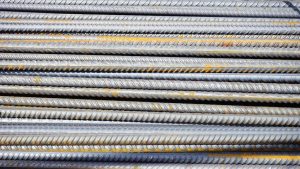A new report from Altus Group has revealed construction costs have fallen in Toronto and Ottawa in the past year amidst general stabilization of prices in the rest of the country.
But the firm’s 2025 Canadian Cost Guide warns the trend towards favourable construction pricing could well be disrupted as U.S. trade tensions and higher tariffs, among other factors, could cause either spikes or declines in costs.
The annual cost guide was released March 27. It features data from over 6,200 development projects with a collective value of over $521 billion. The research, conducted in January, goes not include subsequent trade-induced cost fluctuations.
Cost increases across the country have been levelling off over the past year and are now more in line with general inflation said Colin Doran, head of development advisory, Americas at Altus Group.
“The big question is whether that stability will hold,” said Doran. “With shifting trade policies, upcoming building code changes and labour negotiations on the horizon, developers are facing a new wave of complexity, and that’s on top of already high construction costs.”
Two possible paths
Peter Norman, vice-president and economic strategist at Altus Group, said in an interview tariffs remain a wildcard.

reports that Toronto and Ottawa have both
realized lower construction costs in the past
year.
There are two potential cost paths, Norman said: one is the baseline trend for stabilizing and perhaps even declining costs due to softer construction volumes in 2025, and the second path involves upward pressure on materials costs related to new tariffs, which could offset the baseline view, he said.
Norman has calculated the first wave of Canadian counter tariffs did not materially affect construction inputs but the second wave will see price escalations flow through construction budgets right away, Norman said.
“It’s important to bear in mind, our exposure in the construction sector in Ontario…is pretty low overall,” said Norman. “I calculated about eight per cent of…our overall construction investment is related to materials that have been sourced from the U.S.
“It’s not like it’s going to be creating a massive impact on construction costs, particularly in an environment where so many other costs are probably easing right now.”
Assessing the impacts of Trump’s Liberation Day tariffs and Canada’s reaction, Norman observed there were no additional retaliatory tariffs on construction materials, which was good news for the construction sector.
It’s possible that the vehicle tariffs Canada imposed will affect the cost base for trades and construction companies, Norman said, but that is more diffused.
“There remain in place the steel and aluminum retaliatory tariffs from a few weeks ago, many of which did touch on construction material, and items like appliances which, of course, also get built into the price of new homes,” he said.
“We remain concerned as well about pass-through costs from U.S. tariffs on Canadian steel and aluminum getting built into Canadian imports of fabricated building materials including plumbing and electrical supplies and equipment,” Norman said.
Sectors such as highrise residential have a much greater exposure than others due to a higher incidence of mechanical and electrical components, he explained.
Toronto construction costs have declined due to a drop in building activity and lower demand, the guide reported. Private sector prices moved slightly lower with highrise residential seeing a bigger drop compared to commercial due to excess availability of contractors. Deals for highrise residential concrete formwork, among others, will likely see cost declines.
Trades more hungry
Factors influencing building activity in Toronto have included the elevated interest rate environment and lack of market confidence in capital appreciation for condos.
The condo investment market was turned off, Norman said, and the owner-occupier condo market has not picked up the slack.
However, there are incentives to build purpose-built rentals.
Commented Norman, “At a time like 2025 into 2026 when there are fewer and fewer projects coming out there, the trades are a lot more hungry when they’re doing these contract bids. And so, there are probably more concessions involved.”
Investors are finding that pricing for existing resale buildings is a lot cheaper than new construction due to the high construction costs.
Altus Group reported costs for new industrial warehouses and data centres are more manageable.












Recent Comments